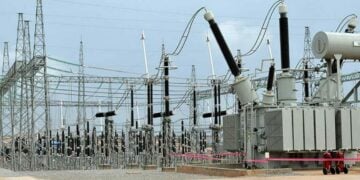Libya, plagued by port blockades and protests at oil facilities in recent months, has now managed to raise its oil production to 1.1 million barrels per day (bpd), the oil minister of the Tripoli-based government said in a text message sent to Reuters on Tuesday.
This is as oil prices fell on Tuesday, paring gains made earlier in the session on lower consumer confidence and the expectation of another 20 million barrels of crude oil to be released from the U.S Strategic Petroleum Reserve.
Brent crude futures fell 35 cents, or 0.3%, to $104.80 a barrel by 12:57 p.m. EDT (1657 GMT).
U.S. West Texas Intermediate (WTI) crude fell92 cents, or 1%, to $95.78.
Libya’s oil production has recovered in recent days after the country resumed oil exports last week. Last Wednesday, the first tankers arrived in Libya to load oil for export, ending a force majeure on key oilfields and ports that had been in place since April.
The force majeure has severely crippled Libya’s oil exports in recent months, following weeks of protests and closures amid the new rift in Libya’s political class over who should be governing the country.
The most recent rivalry is between Fathi Bashaga, the Prime Minister appointed by Parliament earlier this year, and Prime Minister Abdul Hamid Dbeibah, who was appointed last year through a process backed by the United Nations. Dbeibah refuses to cede power. Bashaga, backed by the east-based Parliament, is now based in Sirte in the east of Libya, while Dbeibah is based in Tripoli.
Libya’s National Oil Corporation (NOC) also got a new chief, after Farhat Bengdara was appointed by Dbeibah last week to replace the long-term chairman of the state-oil firm, Mustafa Sanalla.
The National Oil Corporation has said it plans to see oil output rates recover to 1.2 million bpd in less than a month.
“The NOC is striving to increase production and bring it back to its normal rates of 1.2 million barrels per day in two weeks,” the company said last week after it announced production had jumped to 860,000 bpd after the force majeure on major export terminals was lifted.
Violence is still rife, however, which may interfere with these plans.
The return of most of the Libyan oil—albeit far from certain that this time export rates would remain stable—is good news for the tight physical crude market globally amid altered crude flows following the sanctions on Russia over the invasion of Ukraine.





